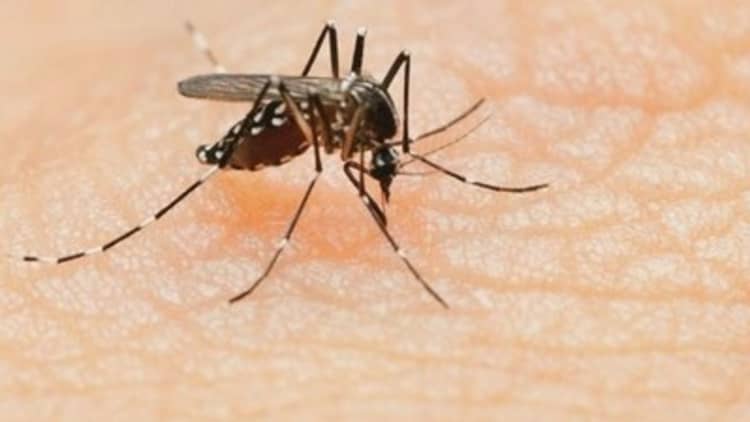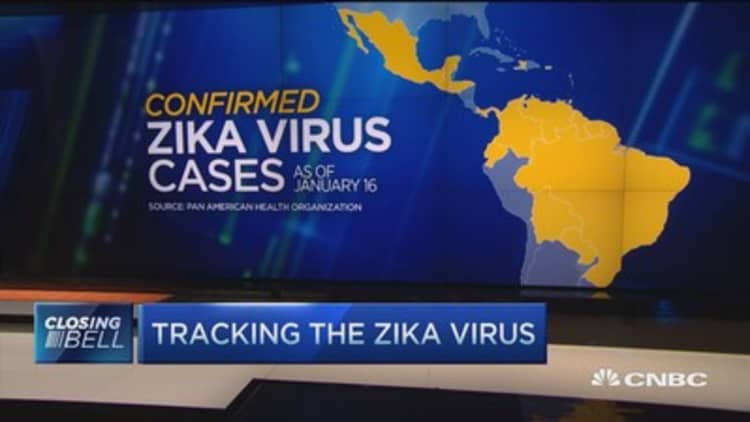
The outbreak of the mosquito-borne Zika virus in Brazil and other South American countries has raised concerns that the virus could possibly spread throughout the United States.
Cases among travelers returning to mainland U.S. have already been reported and these instances are seen increasing by the U.S. Centers for Disease Control and Protection, which warned last week that imported cases could cause the virus to spread in some areas of the country.
The latest cases of the Zika virus were reported in Arkansas, California and Virginia. In these instances, the residents who had tested positive for the virus had recently traveled outside the country.
The World Health Organization warned this week that the outbreak would likely reach all countries and territories in the Americas with Aedes mosquitoes, which transmit the virus.
Though this mosquito is typically found in tropical locations, the mainland U.S. does have Aedes species mosquitoes that can become infected with and spread Zika virus, according to the CDC. The virus is transmitted when an Aedes mosquito bites a person with an active infection and then spreads the virus by biting other individuals. During the time when those people have symptoms, they can then become carriers.
The most common symptoms of the virus are fever, rash, joint pain and red, itchy eyes, according to the CDC. Symptoms are usually mild and last several days to a week, however, many people who have Zika will not experience symptoms.
To stop the further spread of the virus, the CDC on Tuesday added the United States Virgin Islands and Dominican Republic to the expanding list of territories and countries that have experienced Zika outbreaks. The 22 other countries on the list include popular vacation destinations such as Puerto Rico, Mexico and Barbados.
The outbreak has led to reports of increased numbers of women in Brazil giving birth to babies with microcephaly, a rare condition that causes the brain to develop abnormally in the womb and results in a very small head.
In addition, there are reports of adult Zika sufferers subsequently developing Guillain-Barre syndrome, another rare but serious nervous system disorder that can cause muscle weakness, poor coordination and paralysis.
No direct links between Zika and Guillain-Barre syndrome have yet been established. It is unclear if the virus can be transmitted from mother to child during pregnancy or birth.
Since there is no vaccine or specific drug to treat Zika, stopping travel to locations that have Aedes mosquitoes is the primary form of preventing the virus from spreading to the United States.

"Currently, I am telling my pregnant patients not to travel to locations where the Zika virus has been identified," said Dr. William Schweizer of the Department of Obstetrics and Gynecology at NYU Langone Medical Center. "If we are treating mothers who have a history of traveling to these places, we are having them get more frequent ultrasounds to make sure their babies are growing properly. I am also giving my patients other practical advice like having them purchase travel insurance."
United Airlines recently announced that they would allow customers who are worried about the virus to postpone or cancel their trips if they have purchased tickets to Zika-affected areas. American Airlines also began to issue refunds to pregnant passengers holding tickets to El Salvador, Honduras, Panama or Guatemala, according to a spokesman.
If people are living in places with Aedes mosquitoes, they are advised to use insect repellent, wear long-sleeved, light-colored clothes and use insect screens or mosquito nets while inside. To help control the mosquito population, people should cover domestic water tanks, unblock drains, avoid accumulating garbage and avoid allowing water to stagnate in outdoor containers such as flower pots.
Some affected countries have called on women to delay pregnancy because of the possible link to microcephaly. El Salvador has suggested that women wait until 2018, while Colombia, Ecuador and Jamaica (where the virus' presence is unconfirmed) have called for shorter delays, according to media reports.
"I would advise everyone to be cautious about exposure, but that type of response does not seem reasonable," said Dr. Glenn Hardesty, an emergency room physician with Texas Health Arlington Memorial Hospital. "Right now, I think that many people are very sensitive to emerging diseases. I think it is good, though, that the CDC is raising awareness about mosquito-borne illnesses in general."
Aedes mosquitos also spread the more-common dengue fever and chikungunya. Zika symptoms are similar to these viruses but milder, including fever and skin rash, usually accompanied by conjunctivitis and muscle or joint pain.
While it is difficult to estimate the exact probability of the Zika spreading, the virus is worrisome because the most important aspect of its prevention is avoidance, added Hardesty.
"Until we come up with some way to treat the virus, avoidance is key," Hardesty said.
— CNBC's Katy Barnato contributed to this report.






